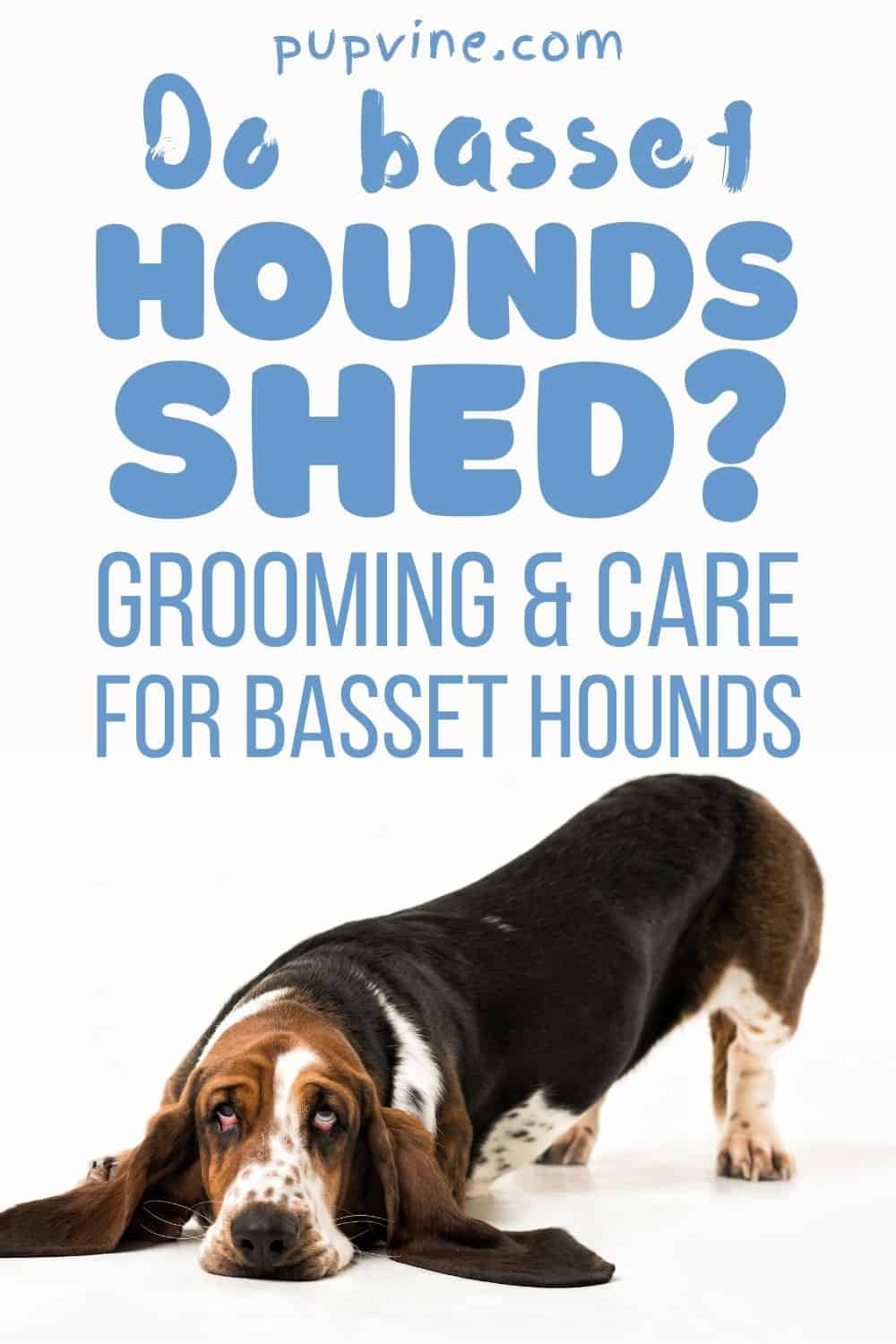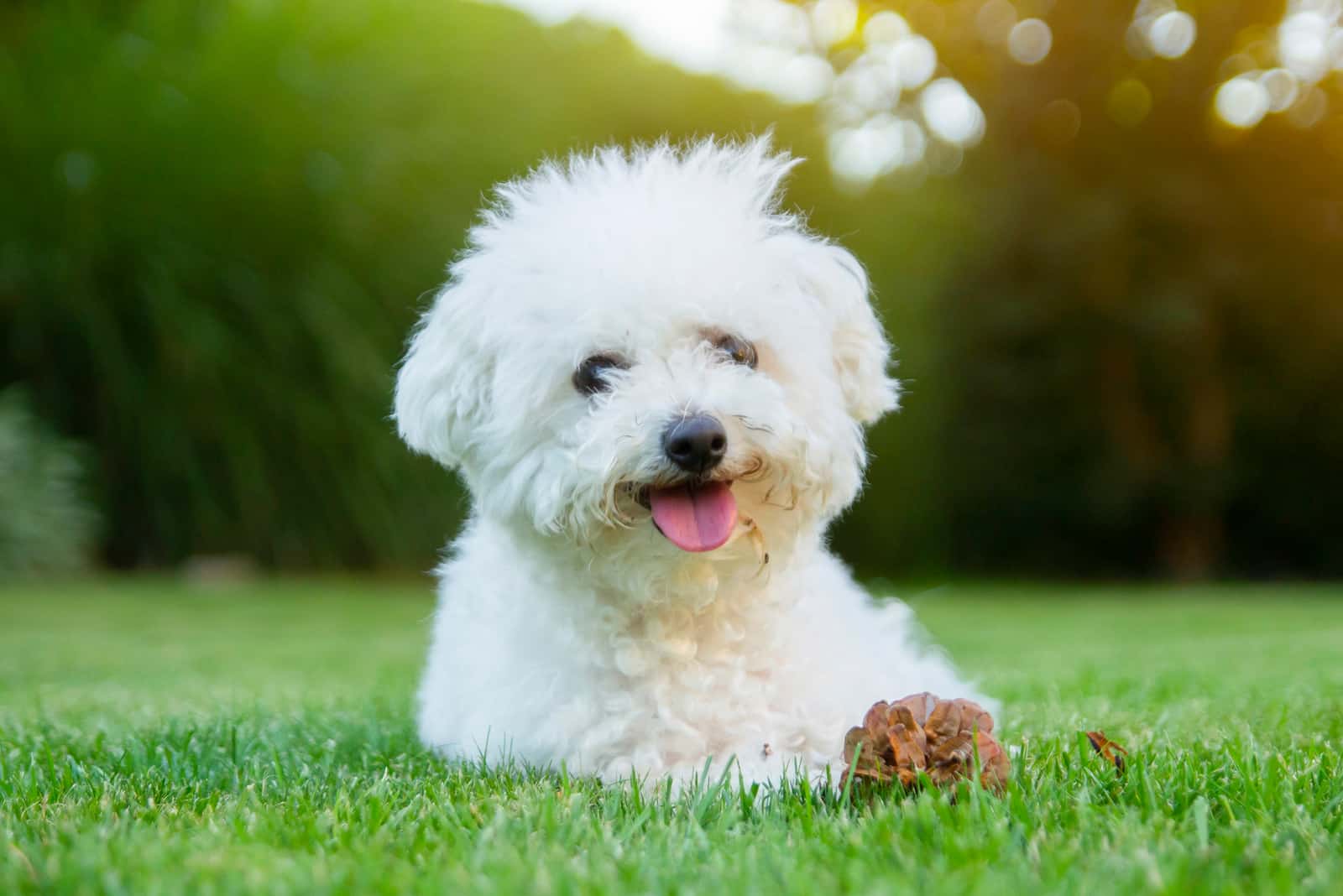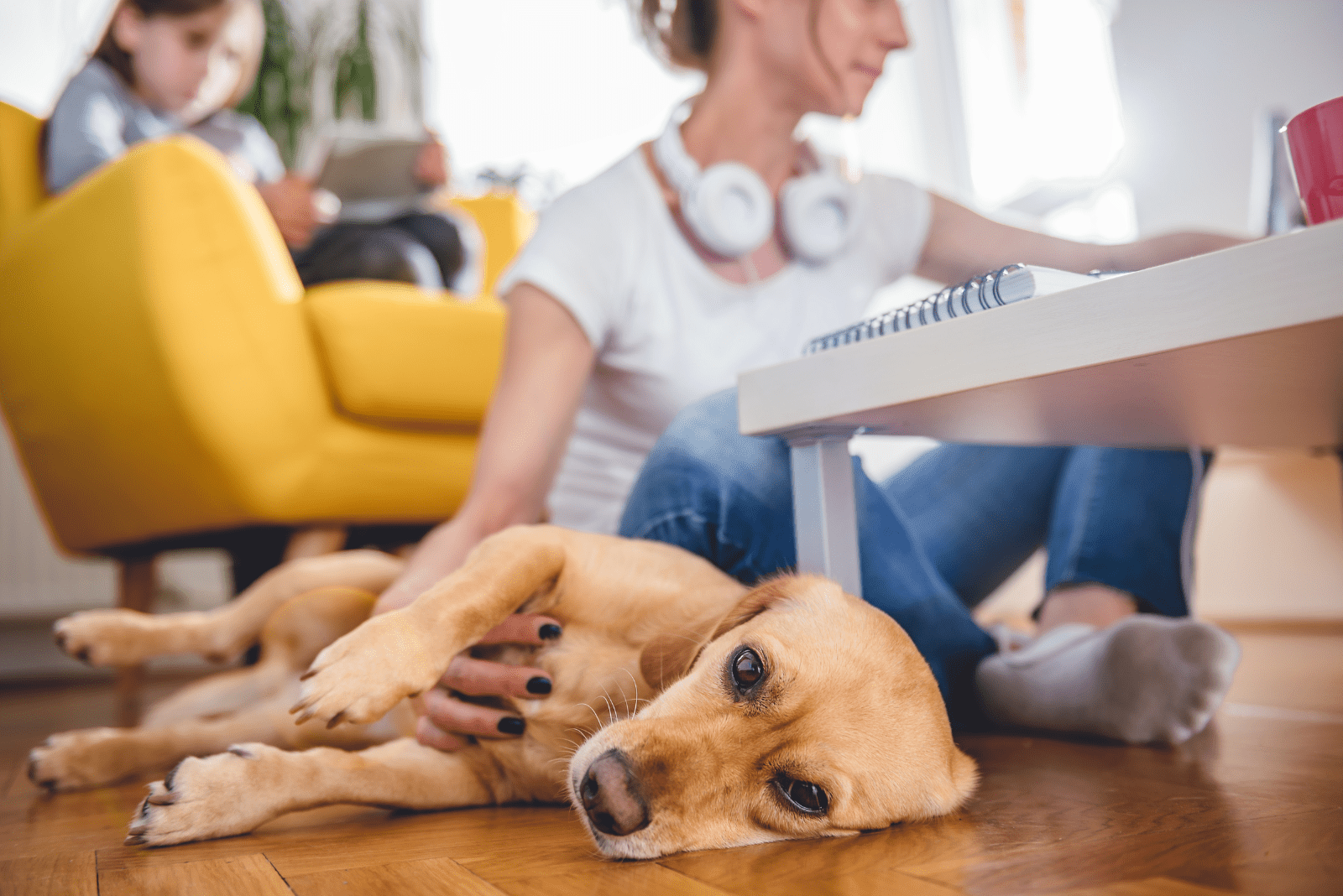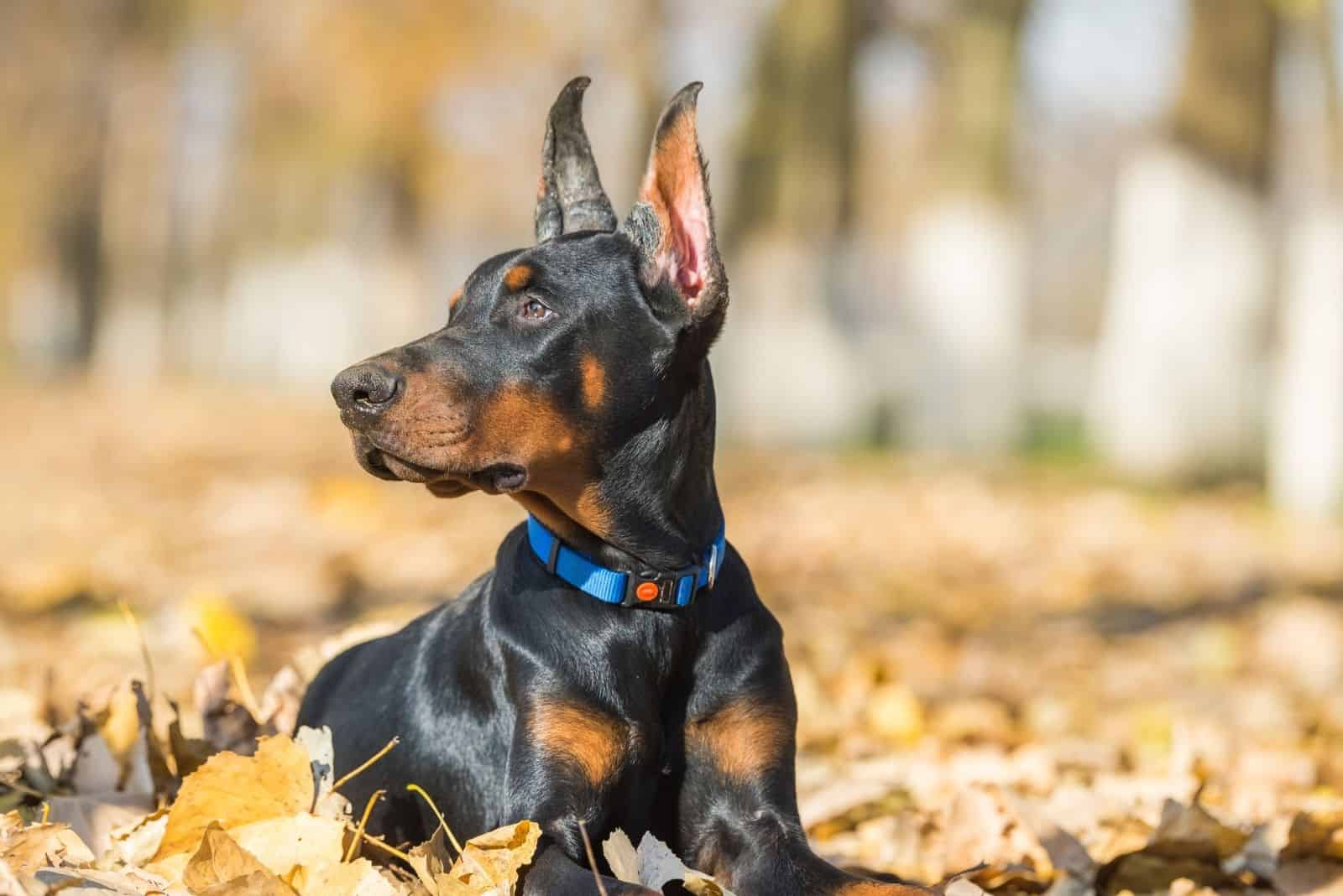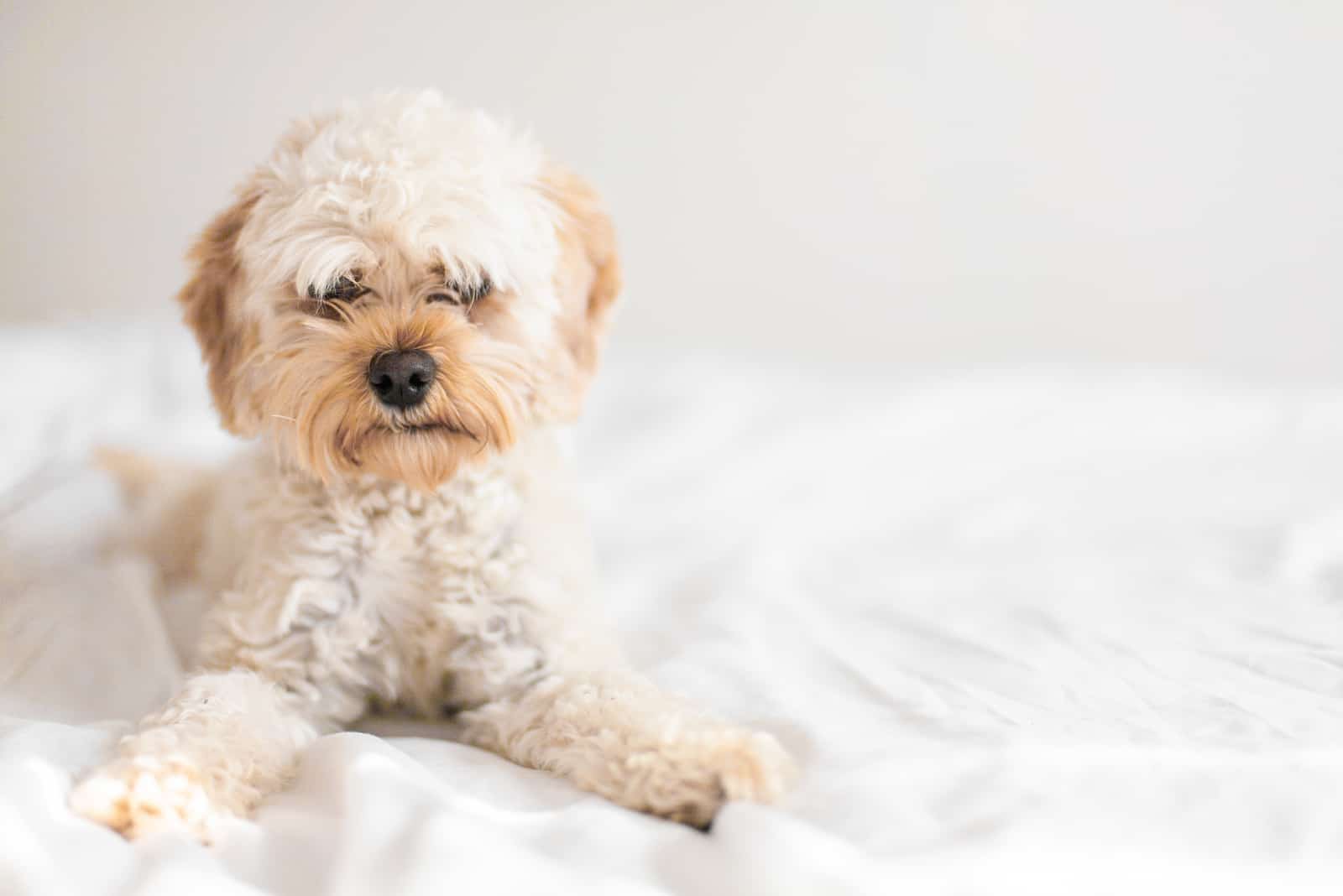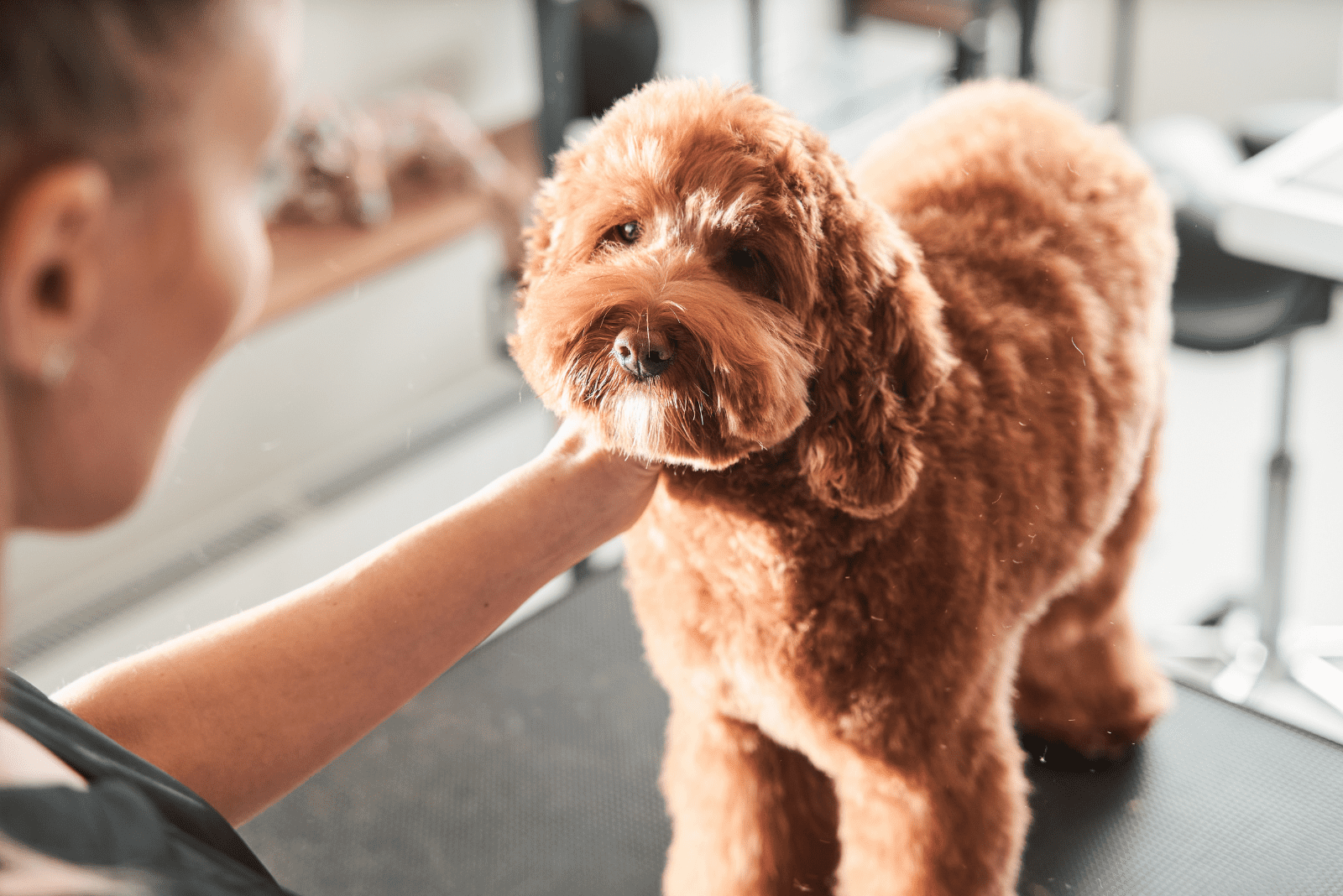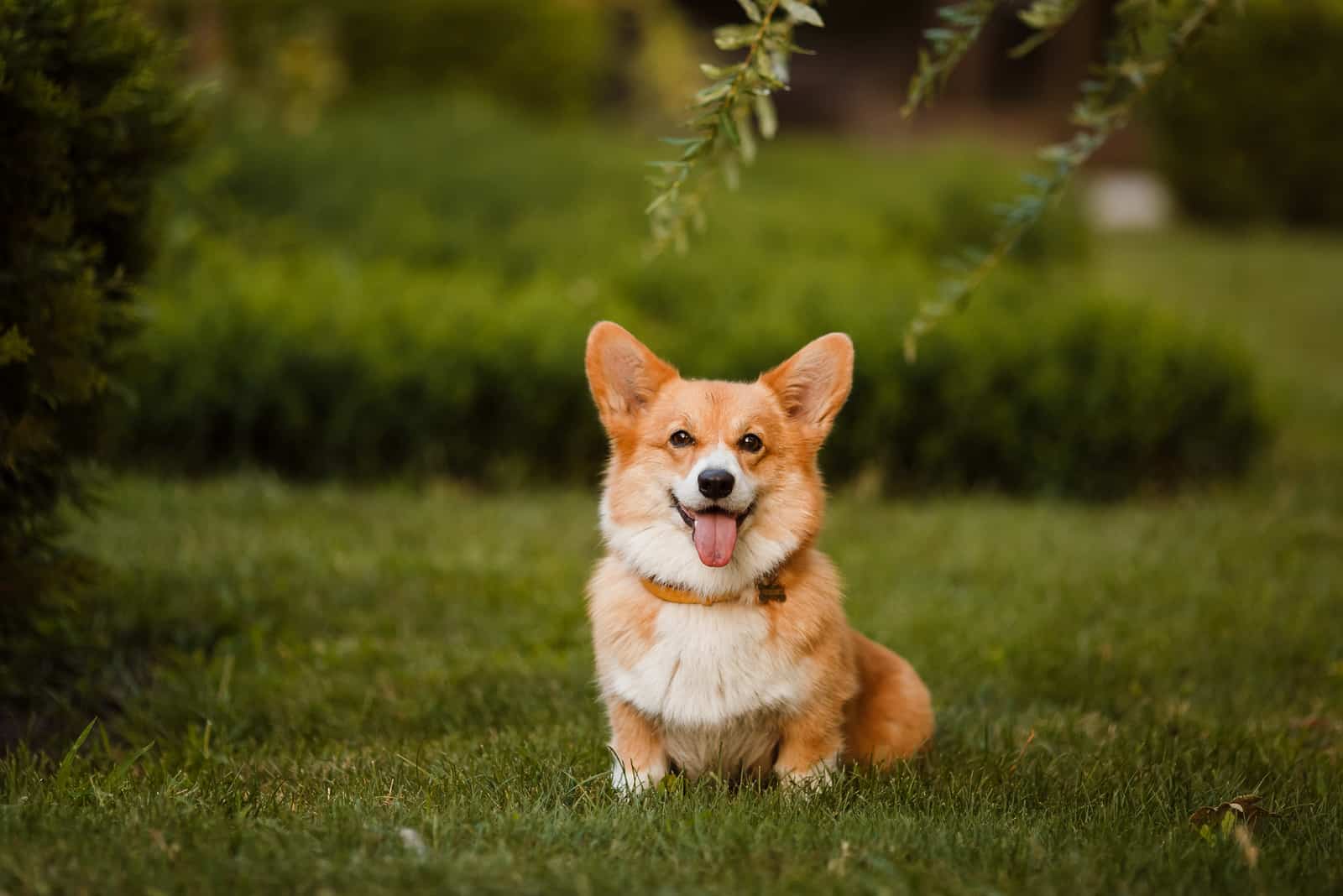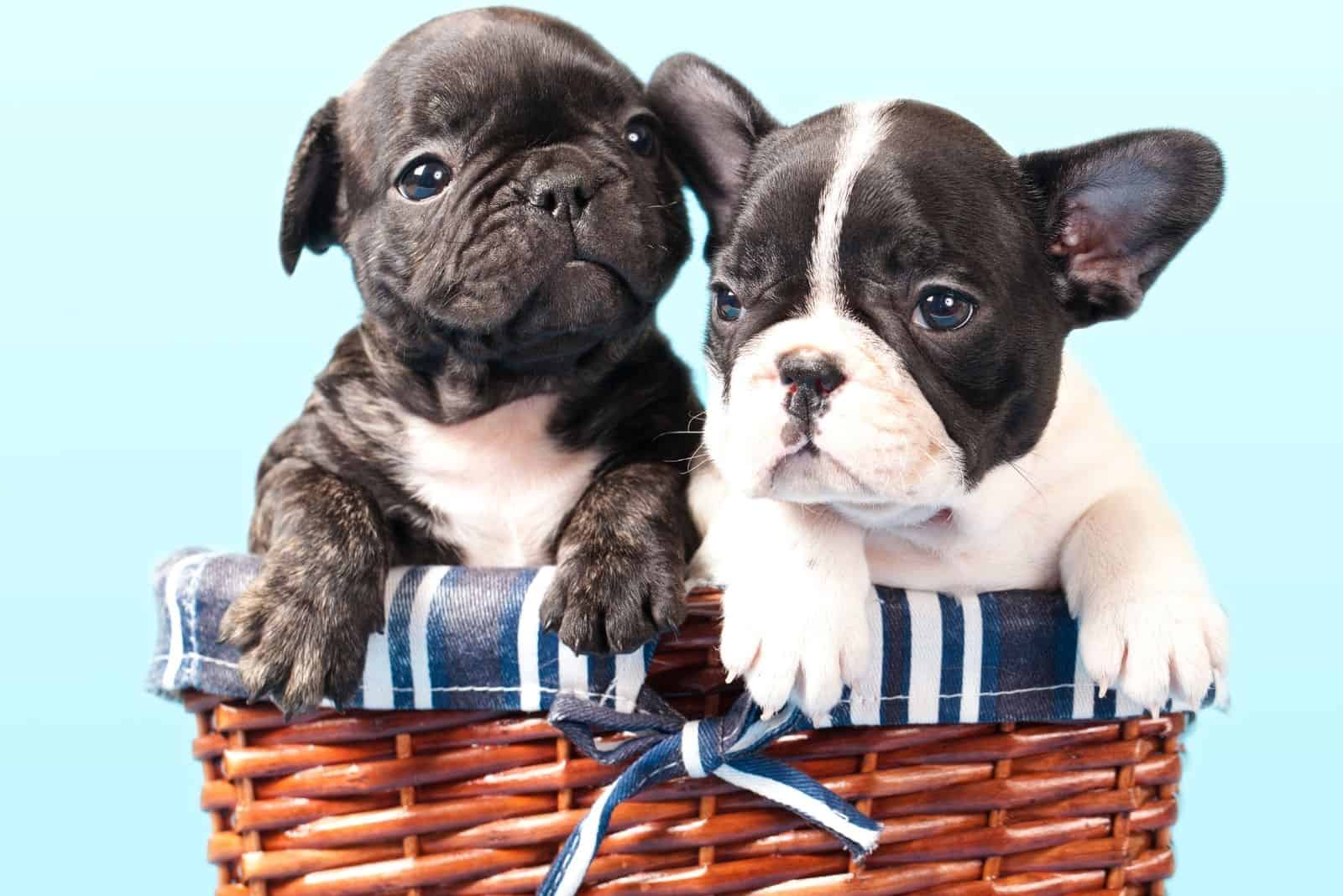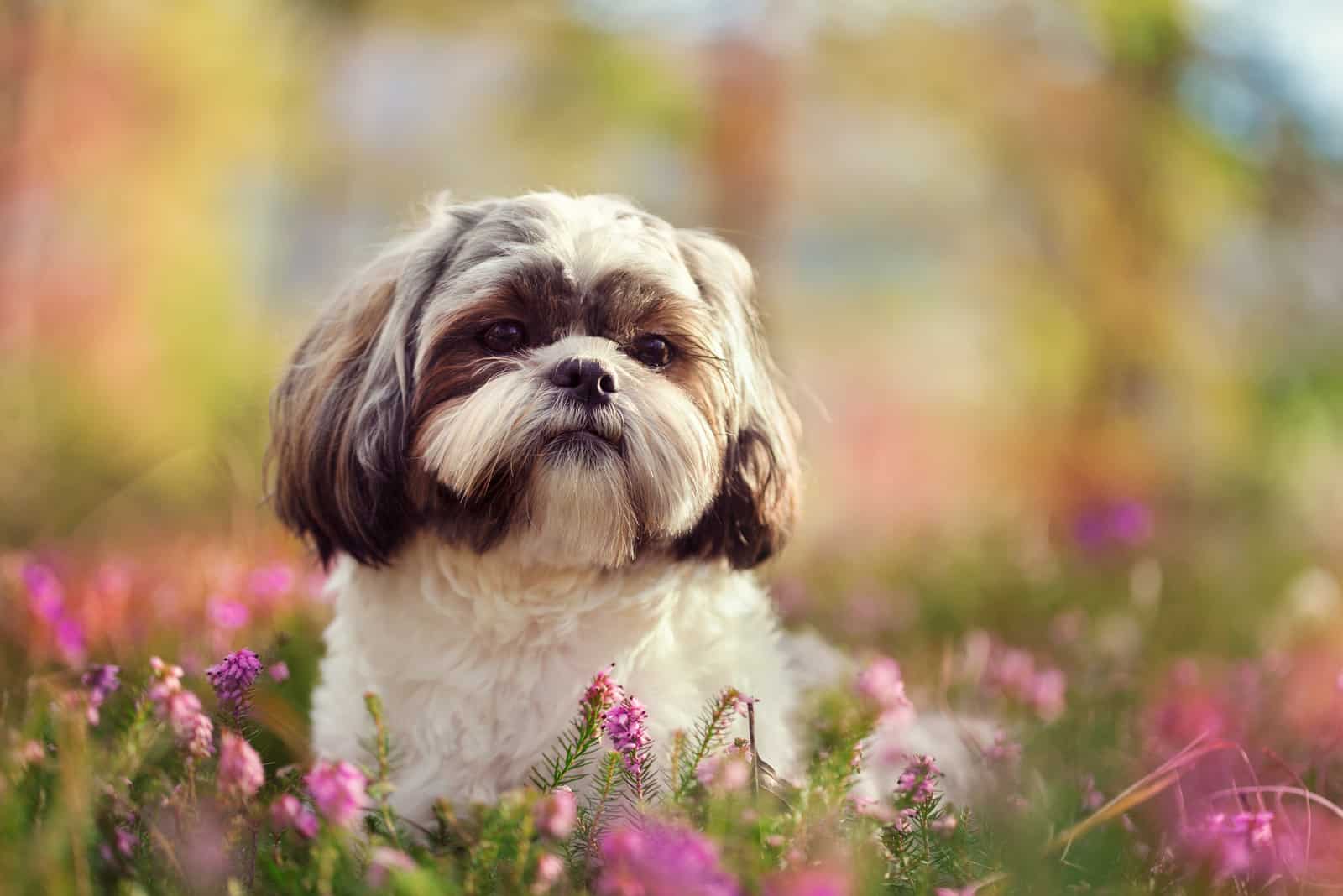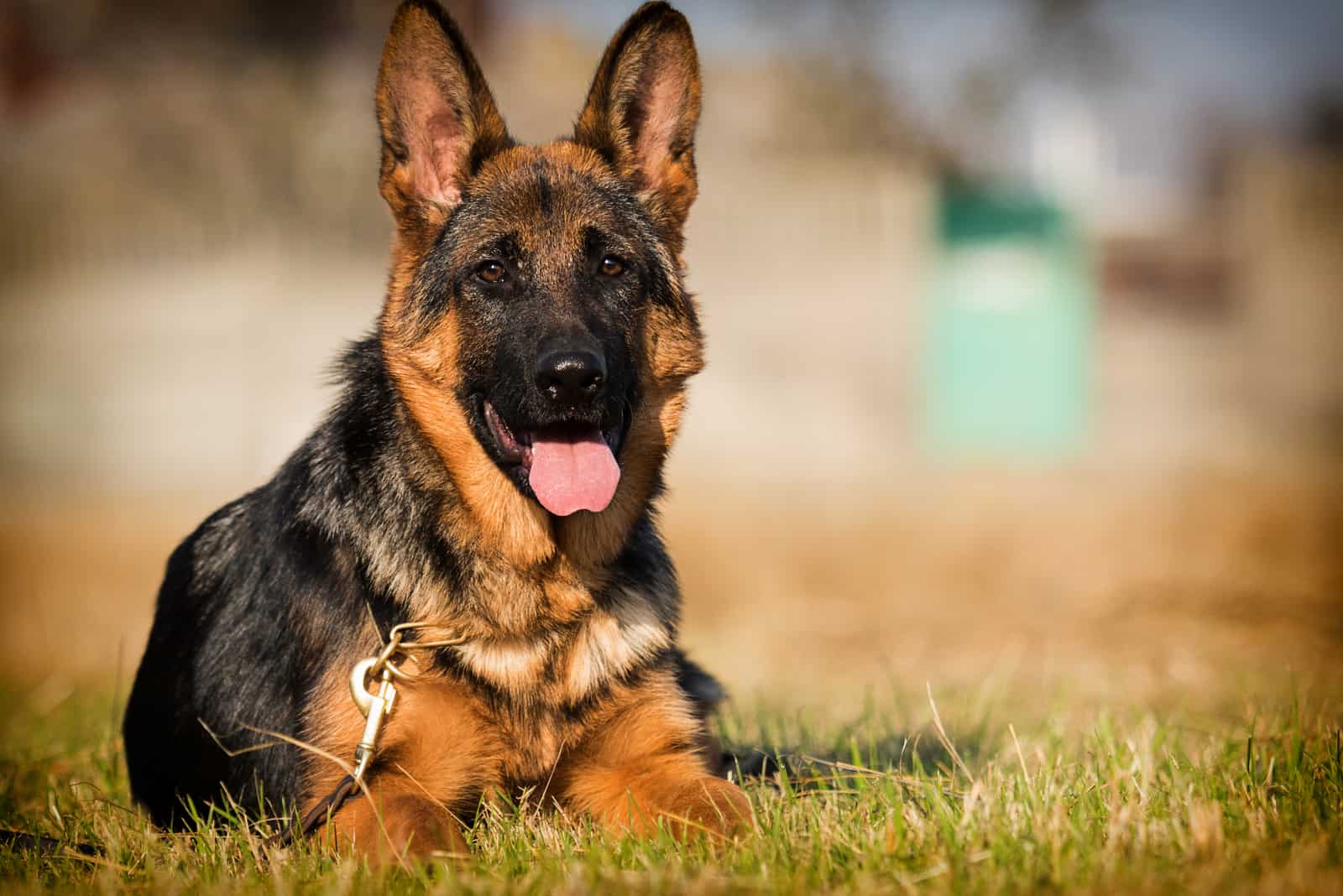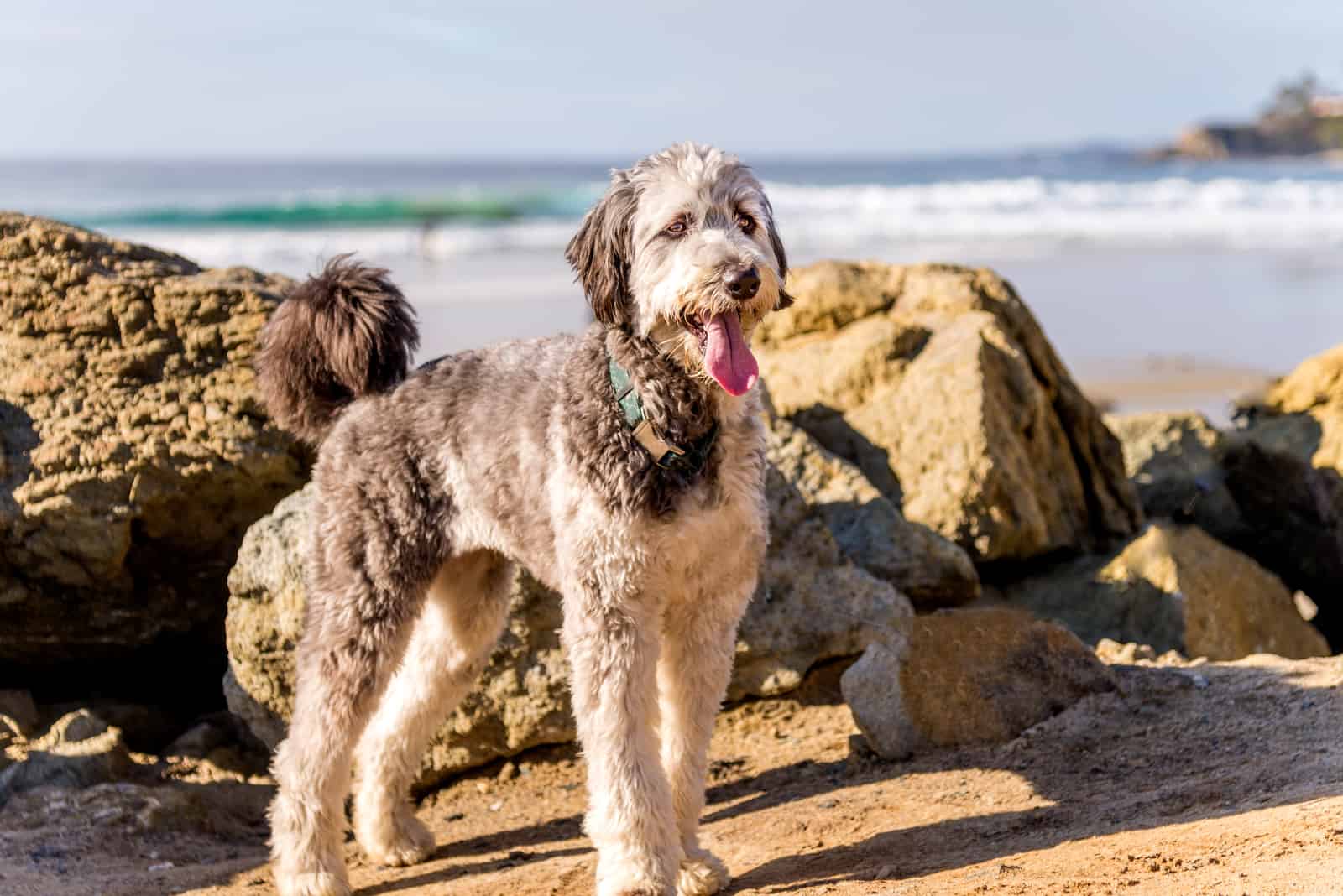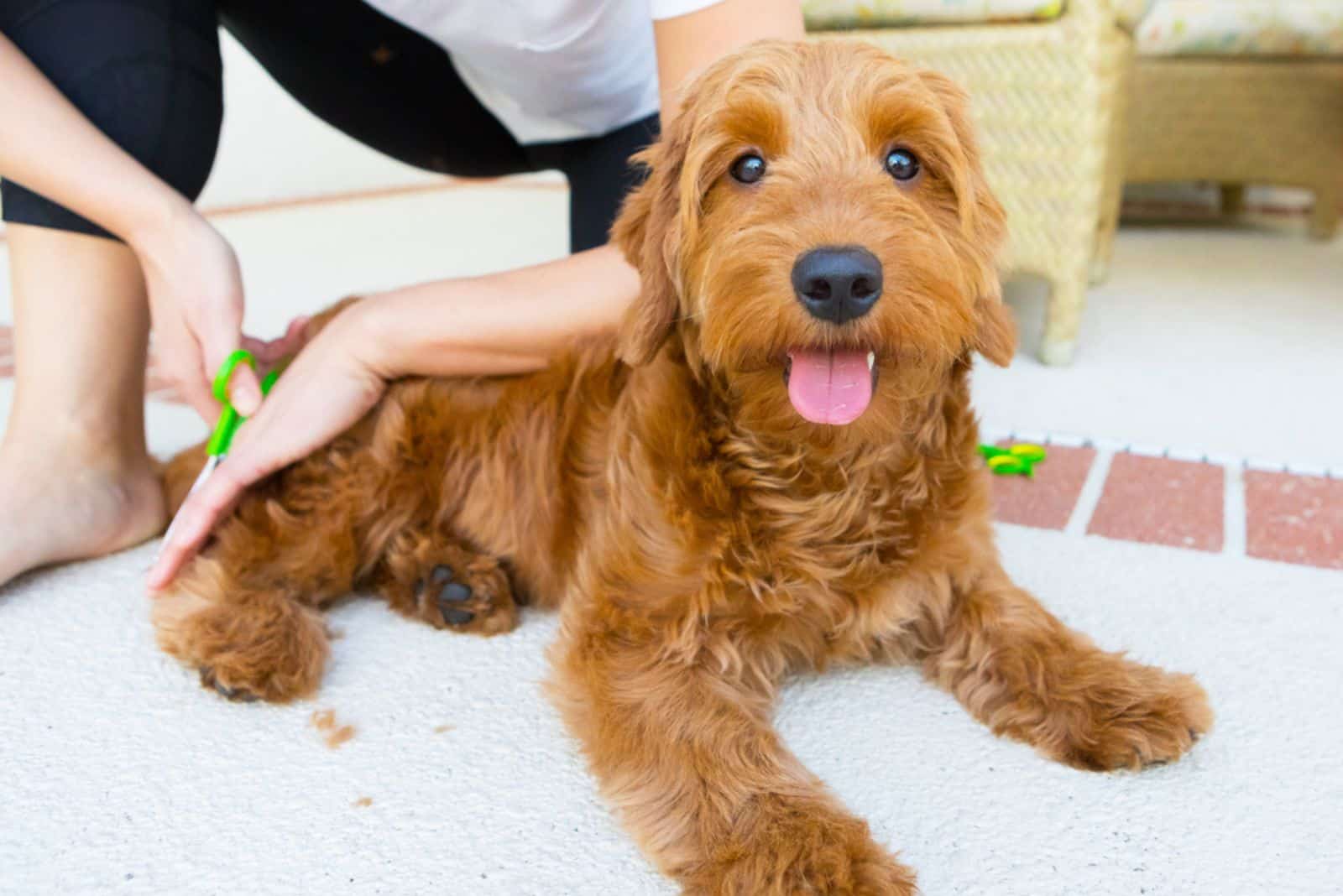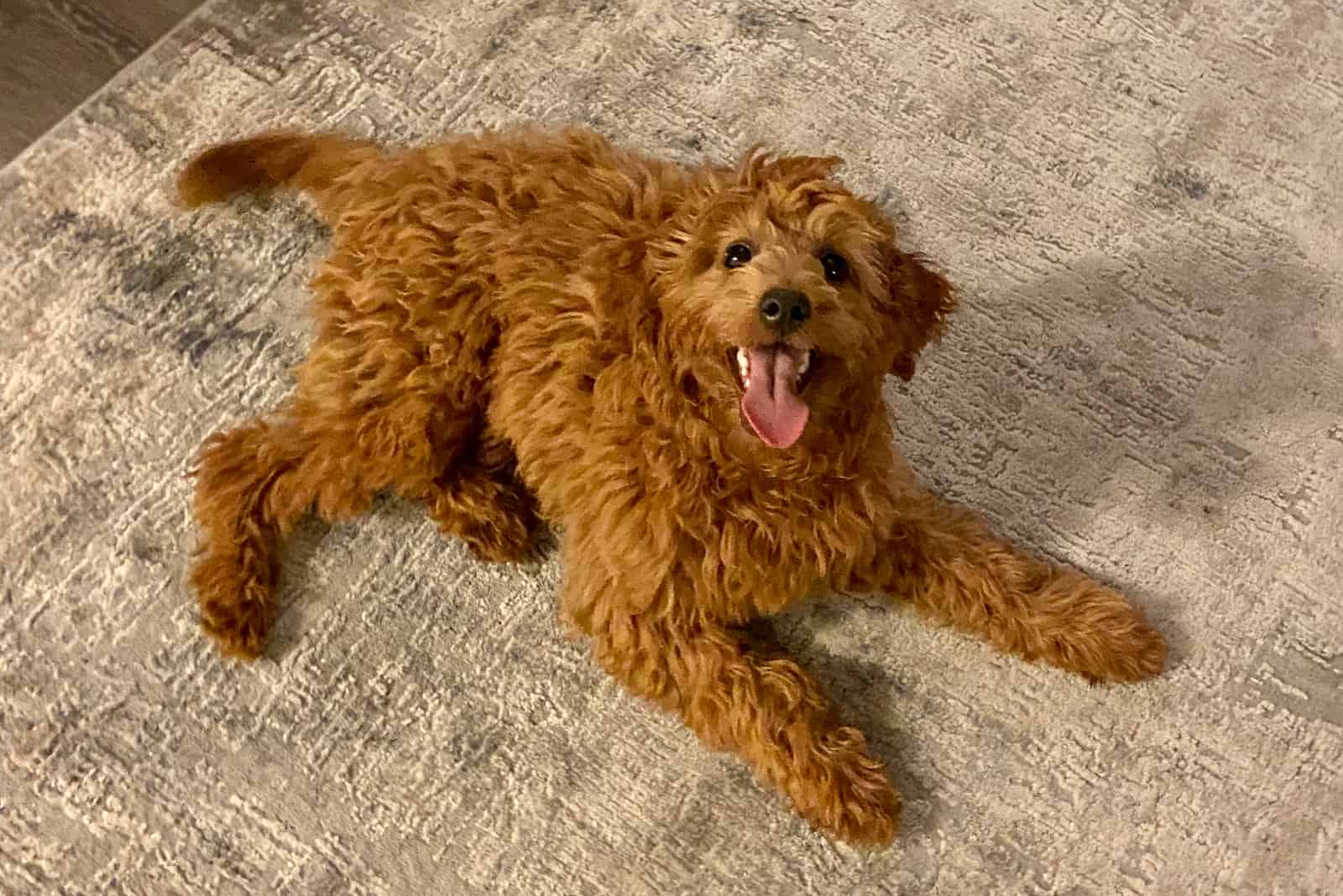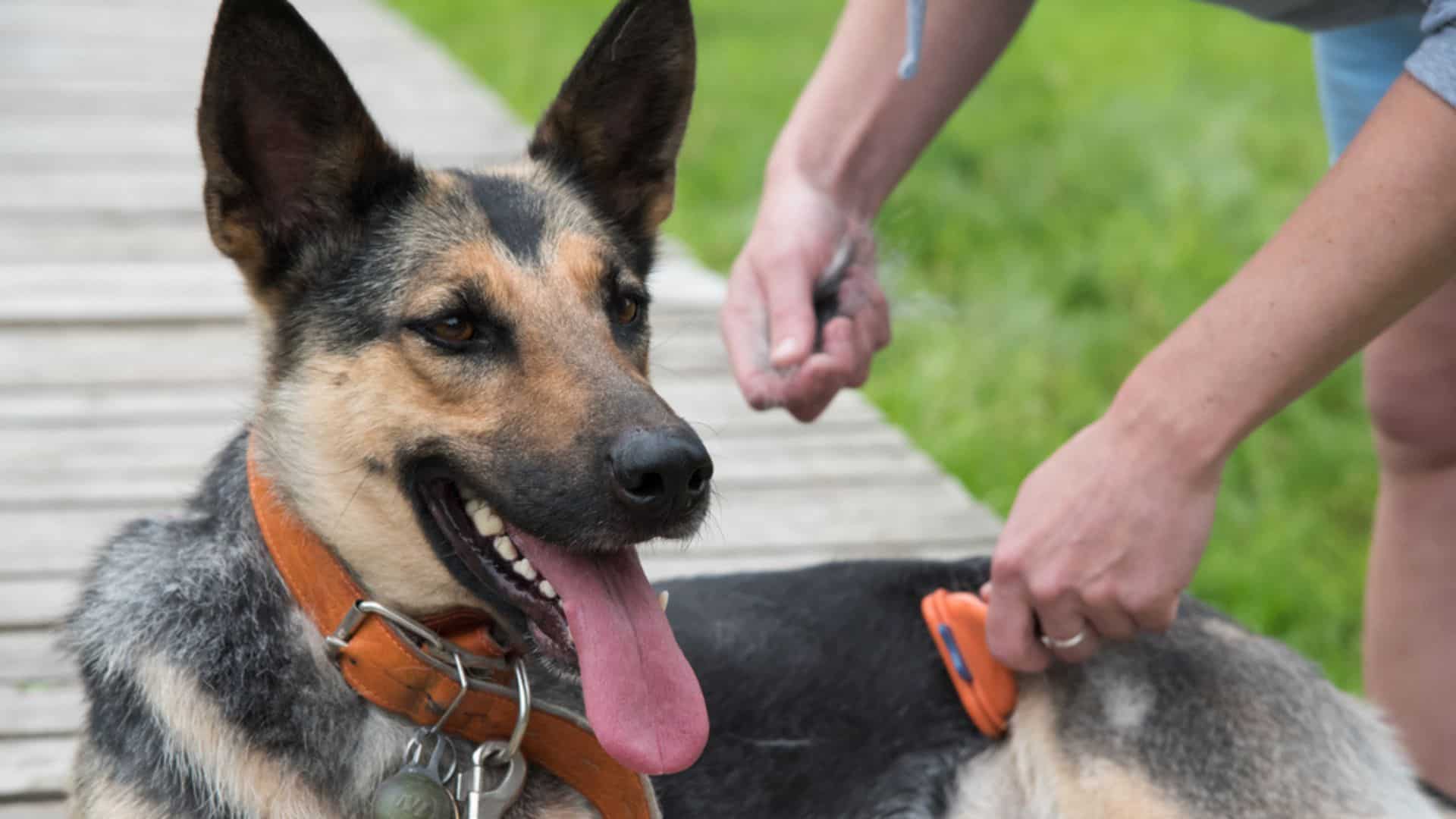With its floppy ears, short legs, and saggy countenance, the Basset Hound is an instantly recognizable dog breed, made famous in parts of the world by the comic strip starring Fred Basset, Tex Avery’s cartoon hound, Droopy, and the Hush Puppy shoe brand. They are known for their playful, easy-going nature, despite being originally bred as hunting dogs.
Apart from these facts, what else do we know about Basset Hounds? Anyone considering one of these loveable dogs with their characteristic long ears and happy, comical gait will want to find out more.
It’s always a good idea to do some research before getting a dog, especially if you’re looking for a specific breed. Each one has different needs and requirements that have to be considered and weighed against the owner’s circumstances and ability to provide a safe, healthy, and loving environment.
One aspect of this is the amount of grooming that might be necessary. What kind of coat does the dog have? Will it need a lot of brushing or washing? Is the dog considered hypoallergenic? All of these questions need to be asked, along with others, to discover whether a particular type of dog is suited to your home and lifestyle.
We’re going to answer the question, do Basset Hounds shed? However, we’ll add in some other fascinating facts to help you in your quest.
The Basset Hound: A Canned History
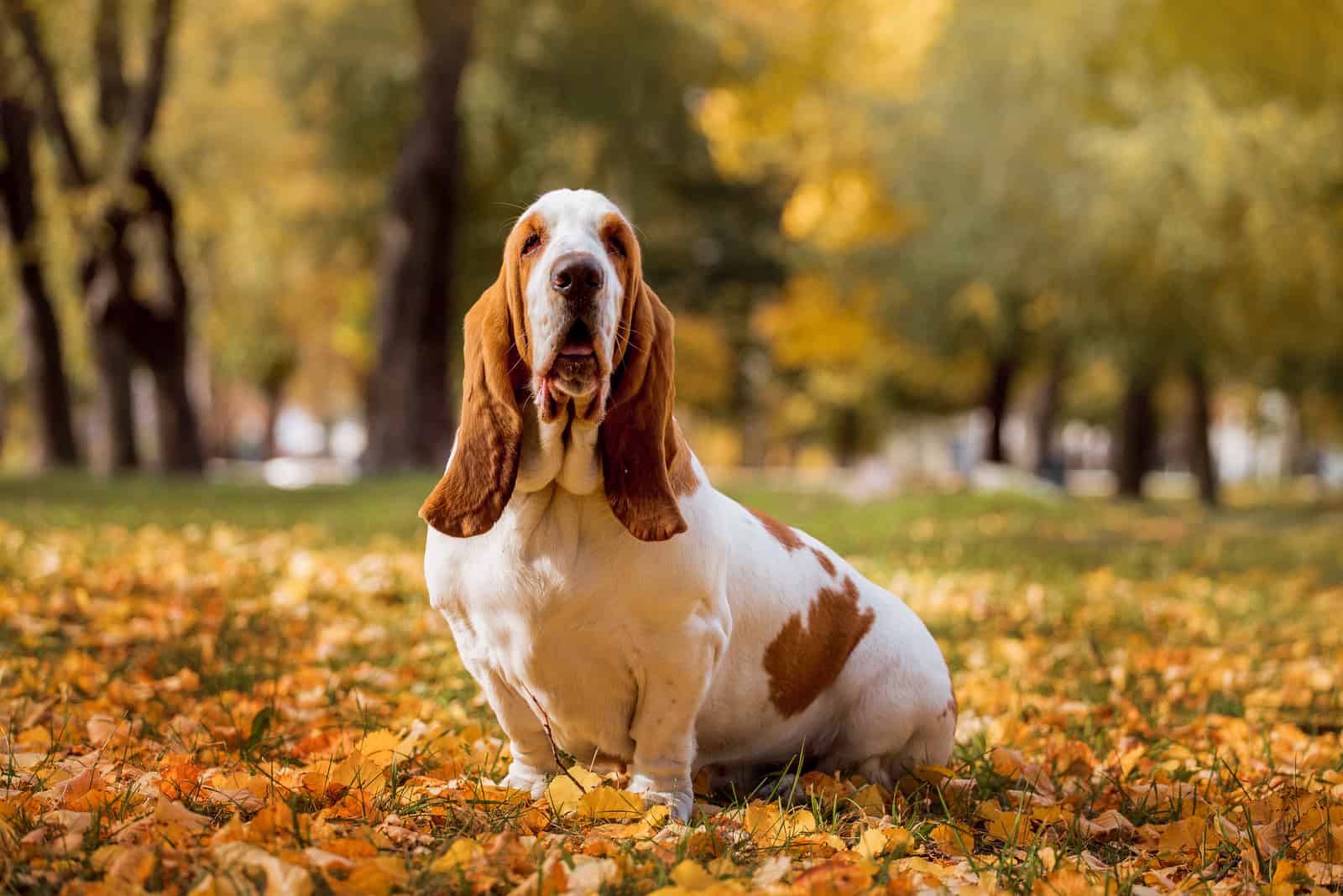
In the 1500s, French monks, whose leaders were often members of the aristocracy, decided that they needed a hunting dog with exceptional tracking abilities. The result, a breed descended from the Laconian Hound and the St. Hubert Hound, was excellent for tracking small game, such as rabbits and hares, as well as larger animals like deer. Their skills were legendary, used by aristocrats across France for more than 200 years.
In the 1800s, Basset Hounds were bred with Bloodhounds, which enhanced their tracking abilities and made them stockier. They were then cross-bred with the Artésian Normand, which resulted in the short legs so familiar to us today.
George Washington was a big fan, having received a pack of Basset Hounds as a gift from the Marquis de Lafayette, sealing this breed’s future as a firm favorite across America to this day.
There’s a marked similarity between Bassets and Beagles, both of which belong to the ‘hound’ family of dogs. However, Beagles are longer in the leg, not as solid, and have a happy face. It’s the Basset’s distinctive sad look that makes them so endearing!
They have the distinctive bi-color or tri-color coat of hounds (a mix of brown, black, blue and white) and take their name from the French term that means ‘rather low,’ referring to their short legs.
As good-natured, gentle, and sociable as they are, you need to look at the whole picture before choosing one as your family dog.
A Short Coat Means Less Brushing, Right?
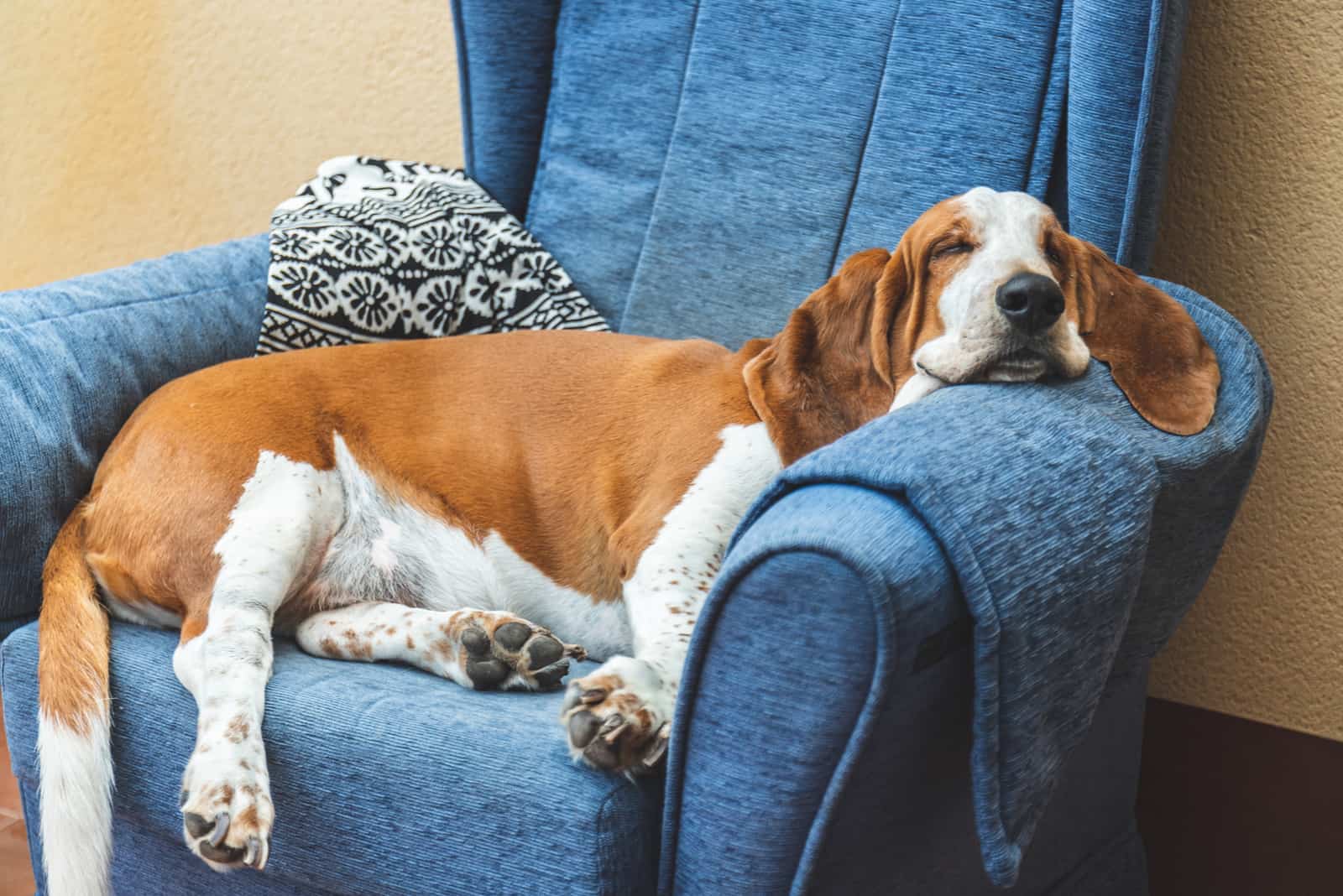
It’s true that Basset Hounds have short coats and that dogs with shorter hair generally need less grooming.
Sadly, this is not the case with Bassets. All dogs shed to a certain degree, whatever claims might be made saying otherwise. Most dogs shed at least twice a year, and some shed all year round. Basset Hounds are prolific all-year shedders, in spite of the short coat!
You should invest in a powerful vacuum cleaner, ideally one designed to cope with animal hair. If you value your furniture, keep your Basset firmly on the ground or in his own bed, or you’ll be cleaning dog hair from your armchairs and couches every day.
To limit the amount of hair sticking to your furniture and clothes, you should be brushing your dog once a week at the very least, but daily brushing is recommended, using a soft bristle brush to make the experience more enjoyable for the dog.
This is not the best choice of dog for anyone with allergies to dog hair or dander and is not classed as a hypoallergenic breed by bodies such as the American Kennel Club (AKC).
But That’s Not All…
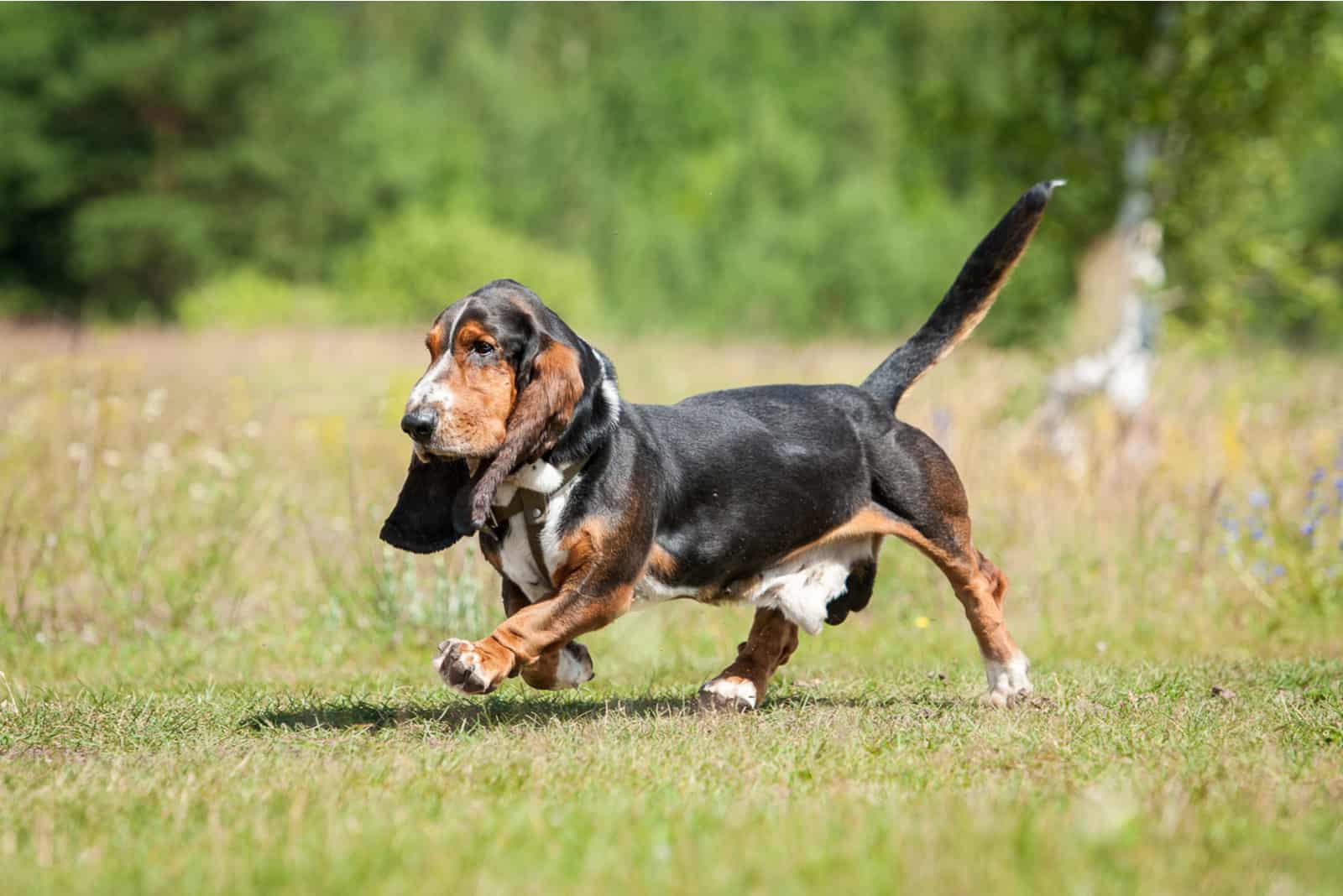
Dog hair all over the place is one thing, but we have to talk about the smell. All dogs have an odor to some extent, but some breeds are more noticeable than others, and the Basset Hound dog has a tendency to be a little on the smelly side.
One reason for this is that dogs, although they don’t have many sweat glands, do have them in their paws. Sweat can accumulate in the fur between the pads, where bacteria breeds. Some dog owners clip this fur (very carefully!) to help solve the problem.
Basset Hounds also have a lot of saggy folds of skin that food, water, dirt, and drool can become trapped in. You will do them (and yourself) a favor by keeping these clean, as it will reduce the smell and cut the risk of skin infections occurring.
Unfortunately, none of these measures will get rid of that smell entirely. That short hair, as well as shedding all over, is going to be greasy. That’s just how Basset Hounds are built. Regular bathing with a good quality dog shampoo will help a little, but there’s no way to eliminate it completely.
One of the times you may notice it the most is after a walk in the rain. It might be an idea to give them a quick wash, in this case, just to take away that pungency.
A Great Family Pet?
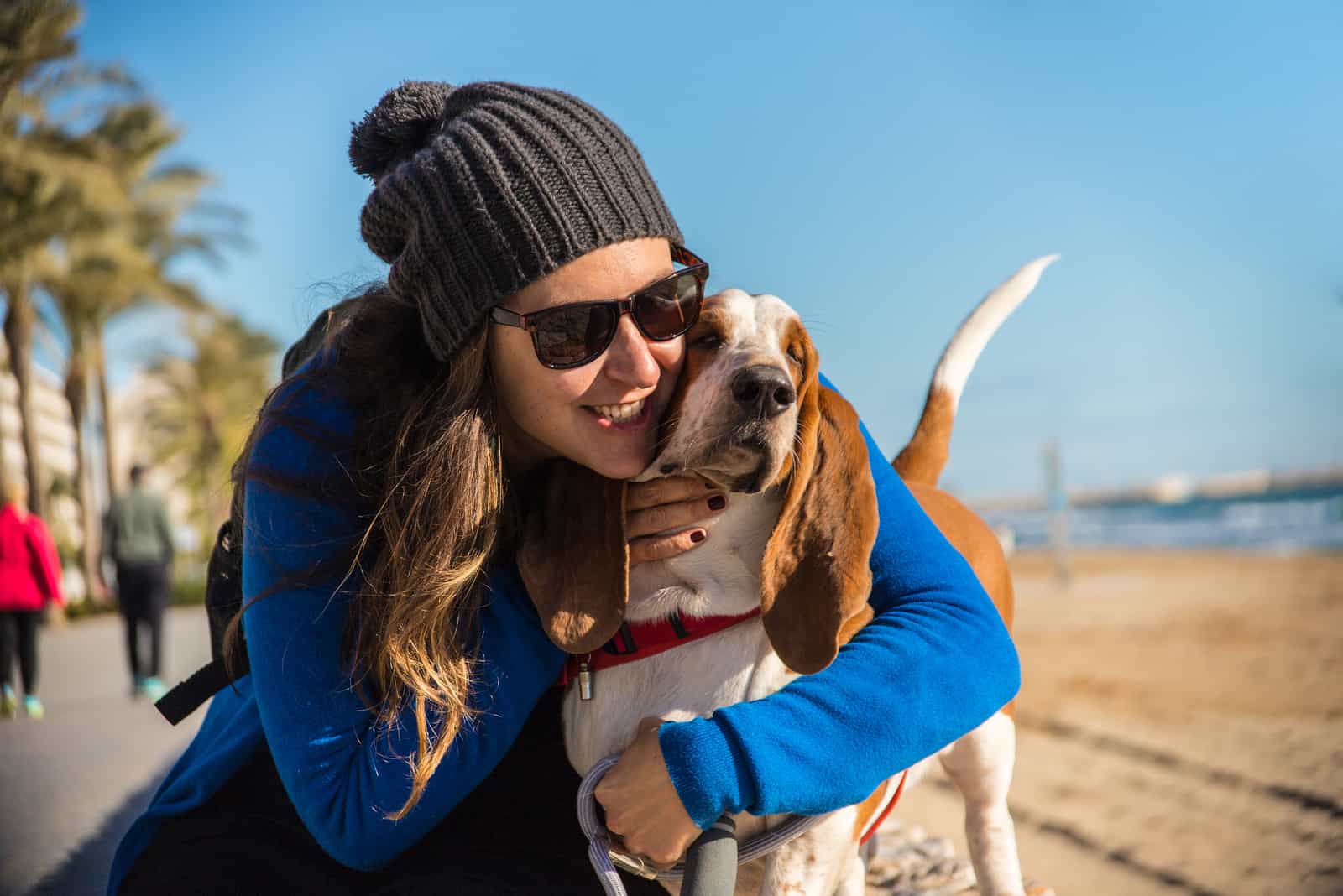
If the excessive shedding and the odor haven’t put you off, then good for you! You’re clearly a dedicated doggy person who can overlook the potential challenges and see the beauty beyond all this.
This underlines the importance of research before heading off to a breeder or dog-shelter – not all breeds are suitable for all situations!
If you are willing to accept your Basset Hound puppy as it is and provide the care and attention it deserves, then you’ll find it a rewarding experience. Their placid good nature makes them ideal as a family pet, especially in larger families or those with a few other pets. They thrive as a member of ‘the pack’ and get on well with everyone.
Being one of the most easy-going breeds around, there is little danger of them lashing out or nipping at small kids. The biggest danger probably comes from them barging a child over as they lumber about, as they can be a little clumsy at times in their enthusiasm.
What Other Challenges Are There?
On the trail
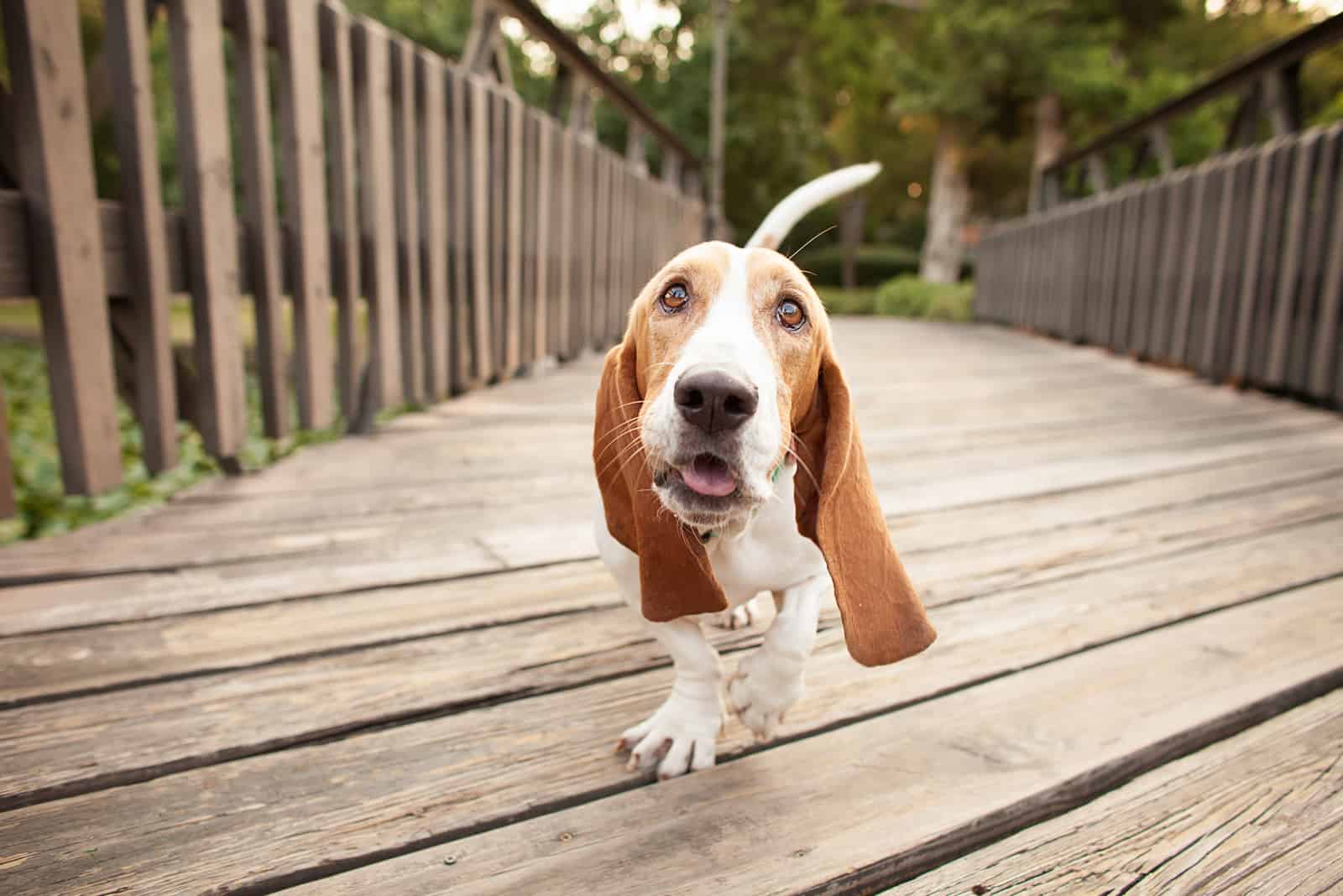
Basset Hounds were bred for their sense of smell. They are scent hounds extraordinaire! While this is great for hunting, with those short legs keeping them close to the trail on the ground, it can be a real distraction when you’re out for a gentle stroll as they’ll stop and change direction at a moment’s notice when they catch an interesting scent.
This is even worse when you’re trying to train them! Once they pick up a scent, it can be a real challenge to get them to pay attention. They are inclined to head off in search of their prey, regardless of your calls.
Because of this stubborn streak, obedience training is a must, and it should be done as early as possible. It will take time and patience, as your pup displays its independent spirit, but it will be worth it in the end.
Mind the drool!
As adorable as those droopy eyes and sagging features are, those folds of skin increase the chance of drooling. This can find its way onto your floor, rugs, furniture, you, and your dog! Aside from causing a slip hazard on vinyl or laminate floors, it’s not very pleasant, especially when your dog decides to shake its head to get rid of it and you are treated to an impromptu shower of saliva.
Drooling can happen at any time but usually occurs around mealtimes or when your dog is drinking. The extra saliva is made to help soften and digest the dog’s food.
There isn’t much you can do to stop this, but you can give their mouth a wipe down after they’ve eaten or taken a drink. This will reduce the chances of drool being deposited around the home and help cut the risk of infections within the skin folds.
A weighty issue
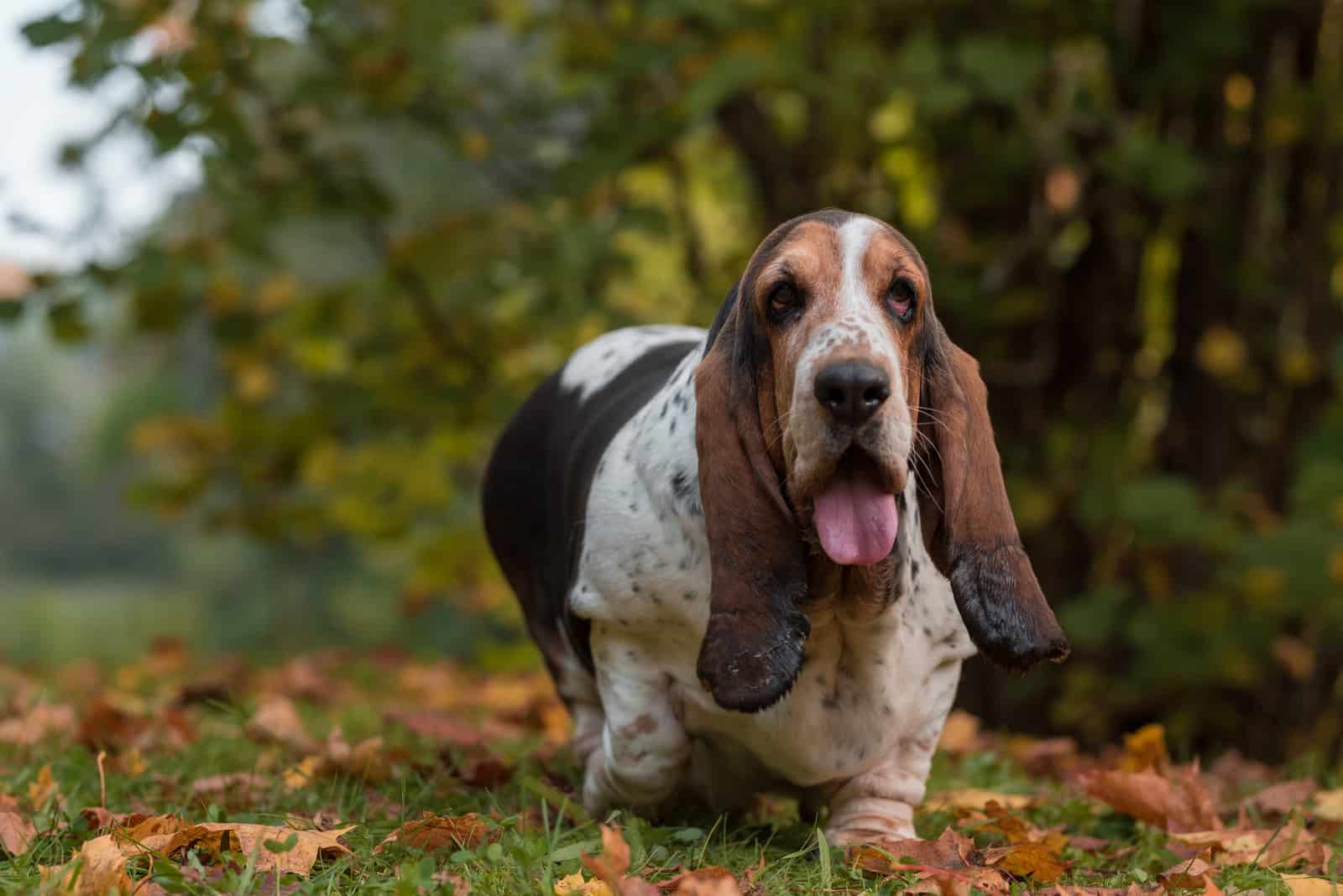
Obesity can be another problem in adult Bassets. They will happily lie around the home, but they are built for the outdoors and need a fair amount of exercise. Without this, they will pack on weight, which can result in a variety of related health issues.
Ideally, you’ll have a good-sized yard for them to amble about. You’ll need to make sure it is very secure, as they’ll be off following an interesting scent before you can blink. Set aside about an hour a day for walking and exercise. They’re built for stamina rather than short sprints and will happily plod for miles through the woods or park.
What’s that noise?
Basset Hounds are known for their tendency to be vocal. That deep bark can be a great deterrent to unwanted visitors but can become annoying when it never seems to stop. They will also howl when bored or left alone, or may even join in when you sing or play a musical instrument!
As endearing as it can be at times, it can become a nuisance, especially when it happens at night. Your dog may hear or sense a wild animal passing or perhaps hear a neighbor’s dog barking, which could set them off on a howling/barking session. The best way to control this is through training, but it isn’t something you can easily eliminate.
Health conditions
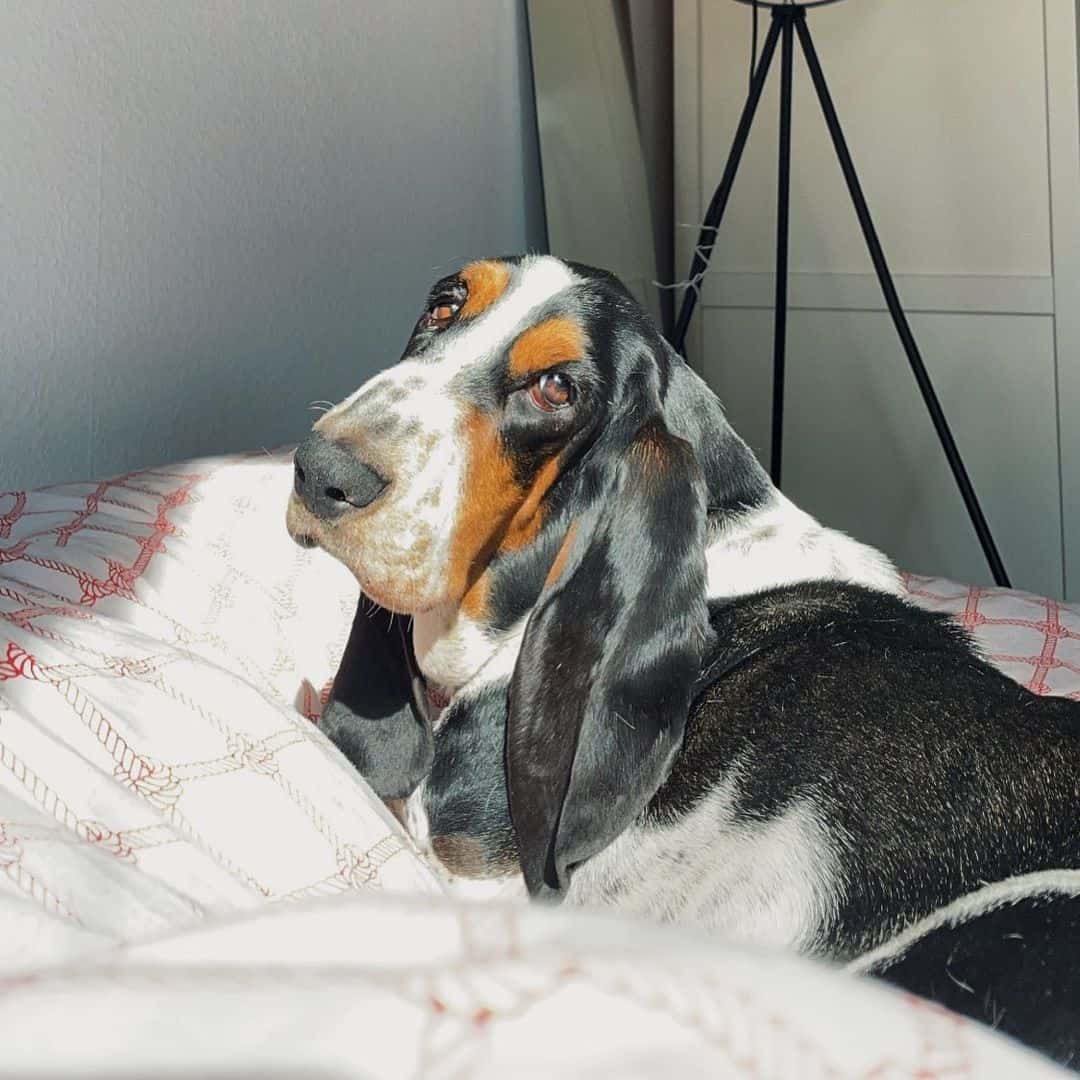
Photo from: @alfred.the.basset.hound
Most dog breeds have a list of common health conditions, and the Basset is no different. Here are a few to watch out for:
• Thrombopathia – an inherited bleeding disorder connected with abnormal platelet function. Platelets help with the clotting of blood in the event of an injury. When these don’t function properly, there is a danger of excessive blood loss in severe cases. You may notice spots of blood on your Basset Hound’s stomach, ear tips, nose, or a lot of blood loss when they lose a puppy tooth. They also tend to bruise easily. There is no cure, although the condition can be managed.
• Bloat – a painful condition that can kill a dog within hours if not treated. Although the causes aren’t fully understood, this condition occurs more in certain breeds with deep, narrow chests. The stomach fills with gas and then twists, cutting off the blood supply to vital organs. The pancreas, being starved of oxygen, then produces toxic hormones which can stop the heart. Symptoms include a swollen stomach, general distress, panting, pacing, and retching or vomiting without producing anything.
• Slipped disc – also known as intervertebral disc disease (IVDD), happens when the ‘cushion’ between the vertebrae (backbones) ruptures or is displaced, putting pressure on the spinal cord. This can cause a great deal of pain and, in some cases, can result in paralysis.
• Elbow dysplasia – another painful condition, this time affecting the elbow joint. It is caused by the joint not forming properly in the early stages and has no cure but can be managed with surgery and medicine. Lameness and limping can be a sign of elbow dysplasia.
• Glaucoma – if you notice that your dog is blinking excessively and that the eye is red or shedding tears, or that the cornea has a bluish coloring, this could be a sign of glaucoma. This is when fluid within the eyeball is unable to drain naturally, leading to pressure that causes a lot of pain and can damage the optic nerve. This can result in blindness if not treated quickly.
• Hypothyroidism – an underactive thyroid gland will cause the metabolism to slow down, resulting in a range of symptoms including weight gain, lethargy, intolerance to cold, slower heart rate, high cholesterol levels, hair loss, and increased risk of skin or ear infections. Again, there is no cure, but the condition can be managed through medication and, occasionally, surgery.
It should be stressed that the Basset Hound has a life expectancy of between 12 to 13 years and that many of the problems listed here can be avoided by getting your dog from a reputable, ethical breeder and by booking regular checkups with your veterinarian.
Related: 4 Most Reputable Basset Hound Breeders In Ontario (2022)
Your dog’s diet will play a key role in keeping them healthy, so be sure only to feed them good quality dog food to help them thrive. Find some more information on this dog’s nutrition in our Basset Hound feeding chart.
Some Final Thoughts
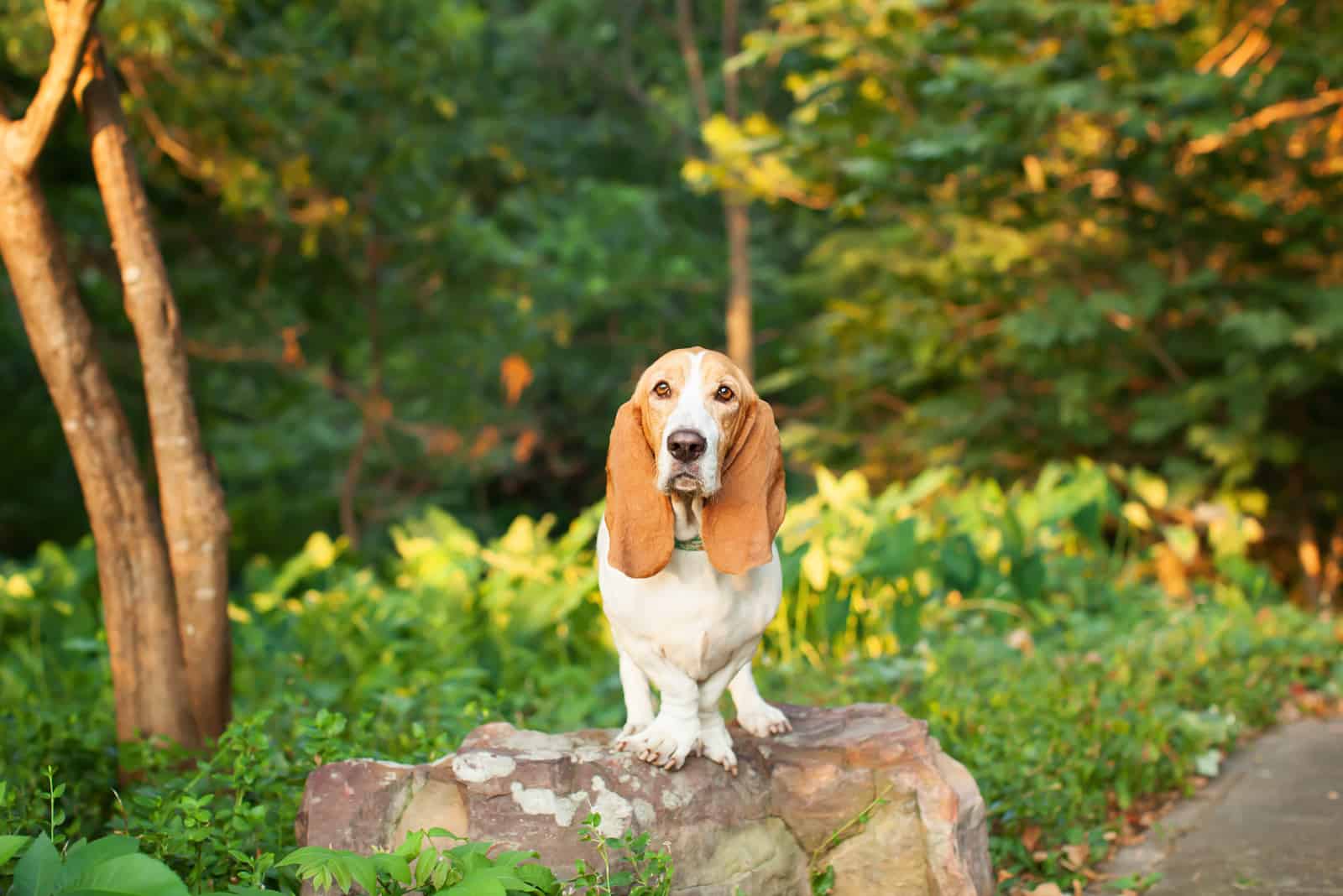
Although he has short legs, the Basset Hound has the solid body and remarkable stamina of a large dog. That droopy, permanently sad face hides a lot of character.
They are even-tempered and affectionate, love human company, and enjoy being part of the pack. They are the most loyal companion you could wish for.
Yes, they have their challenges, as do most dog breeds. But if you can accept the drooling, unique odor, independent spirit, and regular grooming requirements, you’ll gain a loyal friend and companion who will be there by your side come what may.
Taking on any dog requires commitment. Do Basset Hounds need more than most?
Perhaps they do, but it’s totally worth it.
Related Articles:
• European Vs American Basset Hound
